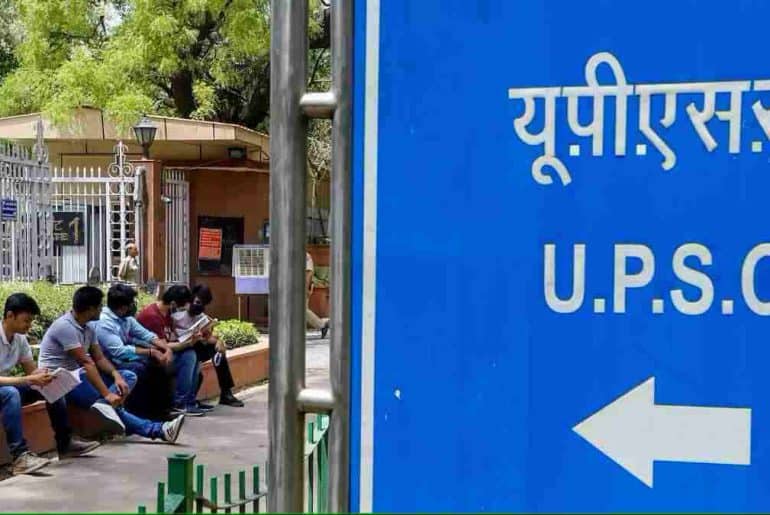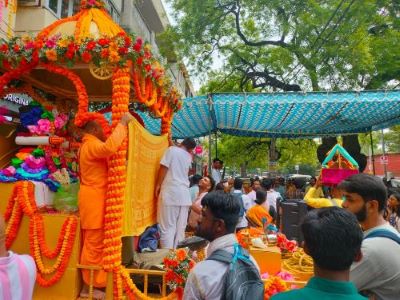Delhi is the home of outstanding theatre arts, whilst Mumbai is the metropolis of Bollywood aspirations. In Delhi, stage art has a special significance and a rich history that is still being preserved through a variety of institutions and live performances.
Delhi, India’s capital, is so distinctive that it offers something to everyone. It has been bustling with possibilities for years, from its mouth-watering food to popular shopping places, monuments and old palaces, museums and government buildings. Out of everything, the city has been sustaining art forms and providing a platform for artists from different fields to explore, grow, and perform. It represents inclusion in culture, where everyone has an opportunity to contribute. One of the ancient gems of the city that is adding charm to it is – Theatre art. The many drama forms, stories, plays, and musicals.
Although many are aware that Mumbai is the “city of dreams,” many flock there to pursue their Bollywood aspirations and make a name for themselves as actors, directors, or singers. Delhi has been a well-known destination for theatre and stage art and has also produced many promising talents, but it is still less applauded for the accomplishments. While some of the artists here continued their careers in theatre and added to its appeal, others became great and well-respected artists in the cinema industry. In the western industry too, Los Angeles is recognised for its film industry, whereas New York is renowned for theatre. Although there has been a line of separation between the stage and the screen, there is still a connection that aids both industries’ growth in different ways. Their originality is beyond comparison.
Coming to Delhi and its vibrant stage art, the city preserves it in a variety of significant and minor ways – It has many students, rising artists, and has created a special audience of art lovers through live performances, nukkad nataks, drama schools, and college societies.
One of the well-known names is of NSD – National School of Drama, which has been a training facility since 1959, providing knowledge and enhancing the abilities of amateur artists. Although Sangeet Natak Akademi is its parent organisation, over the years it has relocated from a number of places. Mandi House is where it is currently set up. Mandi House, which once had ties to the princely state of Mandi, is now home to a number of theatre troupes and establishments, such as the National School of Drama and Shri Ram Centre for Performing Arts. The creation of NSD involved numerous notable playwrights and dramatists. A comprehensive curriculum, the promotion of several theatre genres, and one of the best playscripts have all been created here. NSD has a unique identity that focuses on both conserving the past and fostering hope for the future. From the nation’s capital, these groups organise numerous performances and broaden the horizons of theatre art throughout the entire nation.
The institution also holds workshops and other annual festivals like the “Bharat Rang Mahotsav” to raise awareness of the local arts and draw in more visitors. Children and newcomers to the sector can always use it as an excellent learning opportunity to get going on their path. How could one not include the outstanding alumni and directors who formed the very foundation of NSD with a name like that? Ebrahim Alkazi, a renowned theatrical instructor, was the first to transform the school in 1962 with the help of his expertise, leadership, and strict disciplinary measures. Many people still reflect on the illustrious 15 years the celebrated director spent at NSD, and his role in shaping the organisation helped it reach new heights. Without mentioning Ebrahim Alkazi’s skill, one cannot discuss Indian theatre or the National School of Drama in general. He made sure that the Indian theatre art is not lost and reaches a wider audience by establishing the three-year acting training, developing open theatre, and providing inspiration for the repertory. Some of his productions continue to receive praise as some of the best ever.
There is an unending number of well-known and gifted performers who are working in the entertainment business today, preserving the reputation of organisations like the National School of Drama and also bringing honour to the nation. The list of actors and actresses includes Naseeruddin Shah, Nawazuddin Siddiqui, Neena Gupta, Anupam Kher, Om Puri, Piyush Sharma, Irfan Khan, and many more. This is the National School of Drama’s legacy. This institution is only one of many centres in Delhi that have made contributions to the arts by producing top-notch plays and musicals. One is the Shri Ram Centre for Performing Arts, a renowned theatre company that has been producing plays and offering acting classes since 1958. SRC, like The National School of Drama, has also produced famous individuals in the industry. There are additional independent theatrical groups with base in Delhi that create venues for artists to gather, create fascinating stories, and perform all over the nation.
Delhi colleges have cultural societies that support the arts and permit students to experiment in the field from the college level on up, even at the university level. Ibtida was founded by renowned filmmaker Imtiaz Ali while he was attending Hindu College, as is well known. Many others, such Manoj Bajpayee and Siddharth Malhotra, who attended Delhi University, launched their careers using the many resources the city and university have to offer. It goes without saying that the institution is the alma mater of several well-known artists, starting with Shahrukh Khan, the King of Bollywood, who graduated from Hansraj College and began his career with Delhi’s Theatre Action Group.
Through the Drama Societies at Delhi University, students are contributing to the evolution of theatre art by continually taking chances and incorporating contemporary elements that make it more applicable for the current generation. This includes curating scripts, performing, and taking part in festivals and contests. Women’s rights, girl child education, and scripts promoting community solidarity are among the topics that are publicly performed in the form of Nukkad natak. All of these places are unique in that those who have spent time in these settings honing their craft and giving performances on Delhi stages still have a special appreciation for their formative years as budding performers. These alumni have often reminisced about their time at the National School of Drama or Mandi House and how they attribute their achievements to these institutions.
The singularity of stage and screen cannot be compared, as was stated in the article’s introduction. However, as films have become a popular form of entertainment, younger generations are less familiar with regional art practises and distinctive theatrical methods. As a result, people frequently treat stage and screen the same, which is a mistake. However, acting for the camera and performing live are truly two different things, and sadly, many people from the younger generations have not experienced the latter. Even newer artists who enrol in renowned acting schools participate in stage art in order to later pursue an acting profession. It’s because the Indian film industry gives them more chances to become popular and rich than if they continued with theatrical acting. This art faces a number of different obstacles along the way that make it challenging for it to endure.
Some of these difficulties were brought up in our conversations with a few students and instructors from renowned theatre schools.
Many people these days tend to believe that theatre is the ladder to take you to cinema, that if you begin from here eventually you will reach Bollywood,” they said. “This is untrue. Both theatre and film have unique meanings, and each has something different to offer. According to me, this phenomenon is causing stage art to lose some of its splendour. Many members of Delhi theatre groups just practise and develop their acting abilities in order to pursue a job in the film industry. I’m still relieved, though, that theatre is generating finest plays that the audience enjoys” – An artist from the Shri Ram Centre.
Original art forms in India existed for centuries before the advent of cinema, and were supported by wealthy businesses and appreciated by enormous audiences. Since the 17th century, live performances of Ramleela, which depicts the legendary Ramayana conflict between Ram and Ravana, have taken place at festivals. The popular theatre production Nautanki, which originated in Uttar Pradesh, had a significant impact on the Indian population. Dohas, ghazals, and chhand were frequently used, along with catchy songs and humorous dialogue. There are other well-known plots in this that centre on mythology. Nautanki, a kind of theatre that was once loved by both urban and rural inhabitants, grew in influence and scope as a result of assimilating numerous other theatre techniques. Unfortunately, the popularity that Nautanki once enjoyed is diminishing, much like that of many other creative forms, as a result of the rise of film and the elitist mindset that stereotypes this local talent.
Cities like Delhi still have a lot of places where individuals may learn about the subject and work to keep alive the artistic forms that previously captivated thousands of people. Those who are interested in finding out more can attend plays and exhibits at Mandi House, the Indian Habitat Centre, or the Kamini Auditorium, or they can join one of the theatre groups in their institutions. A Delhi Theatre Festival will be held in August and will feature many well-known performers and wonderful productions for the public.
Theatre has always been a means of expressing feelings and telling stories through music, quirky characters, and dark humour. Indian plays have masterfully portrayed the legends of the Ramayana, Mahabharat, and other great royal empires of India. In order to ensure that this vibrant culture is sustained, thrives, and receives the recognition it merits, Delhi must continue to support and maintain stage art.
Delhi is the home of great arts, if Mumbai is the city of Bollywood dreams. If Mumbai has seen the zenith of great artists, Delhi has seen their birth and struggle. Without Kala, Kahaniya, and Rangmanch, Delhi’s history would be incomplete!
Read Also : https://dubeat.com/2019/03/24/drama-sutra-a-theatre-report-in-three-acts/
List of Additional Sources:
https://thewire.in/the-arts/ebrahim-alkazi-modern-indian-theatre
Story of Ebrahim Alkazi, NSD director who shaped Indian theatre
https://devnautanki.com/about_history.html
Blog of Dr. Devendra Sharma, performer and writer of Nautanki artform.
Featured Image Credits: Top news India, NDTV
Priya Agrawal










